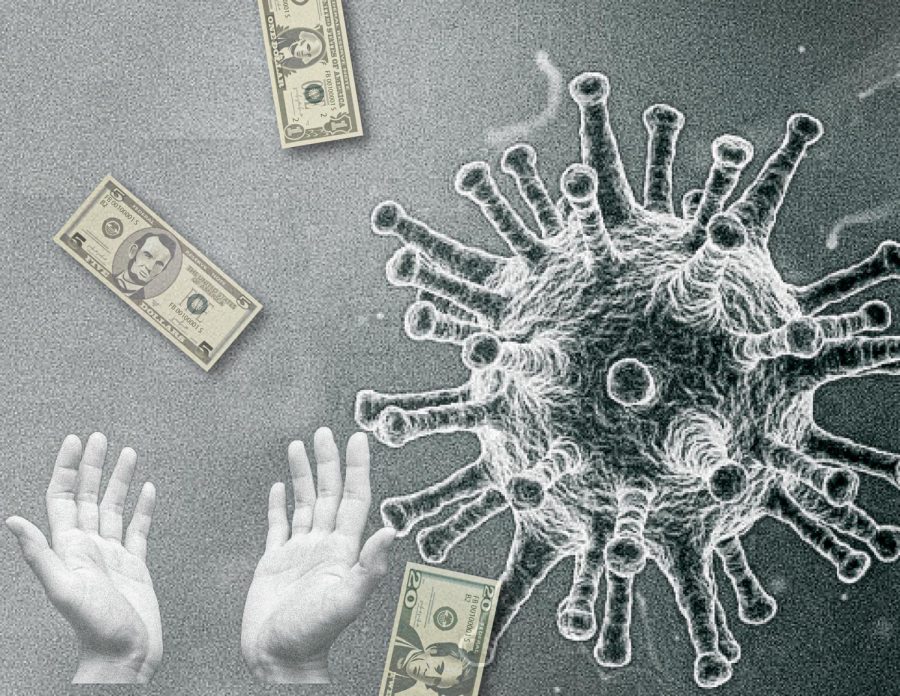OPINION: Stimulus plan doesn’t help the right people
More of this money should have gone to supporting the unemployed rather than big businesses
Giving money to most Americans isn’t a bad thing, but it isn’t the best plan to help the unemployed.
April 1, 2020
The federal stimulus package that Congress passed is a decent response to the impending recession that will hit our country, but it can’t live up to its noble goals until it provides more unemployment benefits.
The 2.2 trillion dollar plan contains massive spending provisions: over 500 billion dollars are to be spend on stabilizing state and local governments and preventing at-risk companies from laying off workers, 377 billion dollars are for the relief of small business, 290 billion dollars are to be spent on one direct payments to households, another 280 billion dollars are given up as part of a business tax cut and only 260 billion dollars are spent on expanding unemployment benefits.
While the plan isn’t perfect, it is an absolute necessity to prevent the worst effects of an economic catastrophe.
“There’s no question that we are in a serious recession.” said Mark Gibson, a WSU clinical associate professor of macroeconomics.
Serious recessions like these call for serious government action. No matter what our feelings may be about government spending, it is undeniable that doing nothing in situations like these is not an effective response. A stimulus package is needed to prevent a depression, which is what we will have if the government does nothing.
Gibson said that the goal of any stimulus package isn’t to immediately make the economy return to its former glory, but to stave off a depression and put the economy on the right track to growth. Gibson noted that this package has several effective ideas for that goal, such as the direct payments to households.
While this package does have useful provisions for cushioning the recession, it needs to offer more unemployment benefits.
Many Americans are hesitant to support unemployment benefits. It is viewed as a program designed to reward laziness and cause people to quit their jobs and do nothing to support economic growth.
There can be problems with unemployment and other welfare benefits, the idea that they don’t help the economy is simply untrue.
Ray Batina, a WSU public economics professor said unemployed people are more likely to spend money because they need to pay their bills and feed their families, which puts more money into the economy and causes growth. Batina also said unemployment benefits are unlikely to cause people to quit their jobs, as they would be ineligible for said benefits.
Furthermore, given the fact that many are unable to work because of the COVID-19 virus or have been laid off as a result of it, more than three million people have already filed for unemployment, making it the largest spike in U.S. history.
Given this large spike and the social distancing protocols surrounding the COVID-19 virus, it is safe to say that the current conditions of the economy call for a massive investment in unemployment benefits.
Unemployment benefits are present in this package, but they are not center stage as they should be. This package contains more than a trillion dollars for business and corporate relief, whereas unemployment benefits are relegated to fifth place on the spending list.
These benefits allow people to continue to feed their families and pay their rent in times where they are put at risk of losing their ability to do either of those things.
The people who are worst affected by a financial crisis like this aren’t companies or stockbrokers, they are those who were barely making ends meet before the crisis.
Working class Americans who need money desperately are underserved by this package, and more provisions for them need to be present.
Gus Waters is a political science major from Bellevue, Wash. He can be contacted at 335-1140 or at [email protected]. The views expressed in this column do not necessarily represent the views of The Daily Evergreen, its editors or publishers.

















